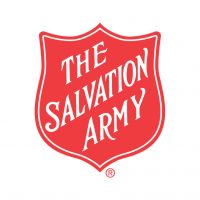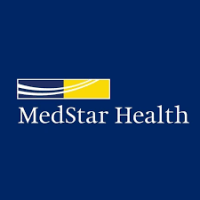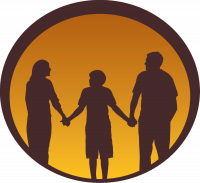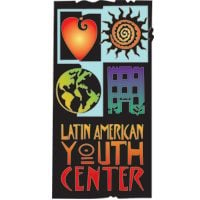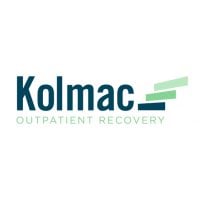Cataada House
Drug Rehab Center in Washington, District of Columbia
Cataada House is an addiction and substance abuse treatment center in Washington, DC that adopts a holistic approach to treatment, offering a range of evidence-based therapies, medication-assisted treatment, and 24/7 access to medical staff.
About Cataada House in District of Columbia
Cataada House, a private rehab facility located in Washington, D.C., has been specializing in the treatment of alcoholism, drug addiction, mental health, substance abuse, and opioid addiction since its establishment in 1989. With a focus on providing a holistic approach to recovery, Cataada House offers a wide range of treatments and services to support individuals on their journey to sobriety.
- Medically supervised detox program to ensure a safe and comfortable withdrawal process
- Individual, group, and family counseling sessions to address the underlying causes of addiction
- Evidence-based therapies such as Cognitive Behavioral Therapy, Dialectical Behavioral Therapy, and Eye Movement Desensitization and Reprocessing
- Medication-assisted treatment options, including Suboxone and Vivitrol, to manage cravings and withdrawal symptoms
Cataada House is accredited by the Joint Commission and licensed by the District of Columbia Department of Behavioral Health. The facility has received numerous awards for its outstanding care and commitment to helping individuals and families in the community, including a Community Service Award from the International Association of Addiction Counselors.
The rehab center treats a variety of addictions, including alcohol, drugs, and opioids, as well as co-occurring mental health disorders. Cataada House employs a combination of evidence-based practices, therapeutic interventions, and medication-assisted treatment to provide comprehensive care for its clients.
In addition to its treatment programs, Cataada House participates in various advocacy initiatives and has formed partnerships with other organizations to provide comprehensive services for those living with addiction and substance use disorders. The facility is also certified by the Substance Abuse and Mental Health Services Administration (SAMHSA).
Genders
Ages
Modality
Additional
Accreditations
SAMHSA
Conditions and Issues Treated
Opioids are a group of drugs that include substances such as heroin, morphine, and oxycodone. These drugs activate opioid receptors in the brain, which produce pleasurable feelings. Opioid addiction occurs when drugs are abused at increasing rates or increasing amounts because the body becomes tolerant of them.
Opioid addiction is typically diagnosed when drug abuse becomes a typical behavior that interferes with an individual’s ability to function daily. The use of the substance results in consequences like legal problems.
Treatment for opioid addiction varies depending on each individual’s needs. Some treatments focus on replacing opioids with other drugs that have similar effects of reducing withdrawal symptoms. Other treatments aim to reduce the risk of relapse by providing psychological support or using more natural methods.
Levels of Care Offered
This center offers a variety of custom treatment tailored to individual recovery. Currently available are Aftercare Support, Drug Rehab, Intensive Outpatient, Outpatient, with additional therapies available as listed below.
An intensive outpatient program is usually the first phase of addiction treatment. It provides relief for those addicted, but not ready to commit to an inpatient setting. IOPs consist of a daily 3 to 5-hour program, and there is a required number of hours per week. The goal here is to teach patients healthy coping skills, such as stress management.
Outpatient programs offer a lower intensity level of addiction treatment than inpatient facilities. They are ideal for those who have graduated from inpatient facilities, have a supportive home environment, and are motivated to commit to the program. Services offered include medication-assisted treatment, individual and group therapy, and peer group support.
This treatment is a popular option for those suffering from a lower intensity addiction. It is not advisable for someone who needs to go through a medically supervised detox or does not have a supportive home environment. It requires motivation and dedication to commit to the program without constant monitoring.
Aftercare Support in drug rehab is crucial because it helps people stay sober after treatment. Aftercare Support in drug rehab is helpful because it provides the recovering person with a support group, including family members, friends, and other peers who are also in recovery.
The benefits of Aftercare Support are that it provides a pathway that will help people get sober for life. It supports healing at all levels, physical, mental, emotional, and spiritual. Another benefit of Aftercare Support is that participants learn to maintain their sobriety through holistic methods. They learn to modify behaviors individually to have peace of mind, have positive relationships with others, and find peace on the inside.
Therapies & Programs
During individual therapy at Cataada House in , the person in recovery meets with a therapist one on one to go over their situation and learn from past mistakes. The counselor or therapist will use this time to address the causes of addiction, triggers, and any mental issue or dual diagnosis. They will also address aftercare plans, giving them the best chances of long-term sobriety.
This therapeutic process is very intense and challenging to go through. Some clients may find it easier to open up with someone apart from their family or loved ones who understand their struggles and experience with addiction.
The process of going through couple’s therapy at Cataada House in allows for both partners to be on the same page regarding addiction recovery. Whether one or both members of the couple struggled with addiction, they can improve their odds of sobriety by undergoing this treatment together. This therapeutic environment teaches how to communicate effectively and avoid relapse triggers while building healthy lifestyles that may help maintain sobriety following graduation from rehab programs.
Family therapy is designed to help addicts get clean and sober by using what they love the most; their family. Most drug treatment centers make it mandatory that the addict’s family attend therapy sessions, which is great because having everyone there to support them makes it much easier for them to get clean. Not only are they surrounded by people who want them to get better, but everyone is there because they want the best for them, not because they feel like they have to be.
Drug addicts are often surrounded by resentful or uneducated family members who would, at times, rather see them stay addicted because it makes their own lives easier. Sometimes they don’t understand what the addiction is or how they play a part in it. They know that during and after the addict’s sobriety journey, they will face challenges and changes that they aren’t sure how to handle. This can be very tough for an addict to go through on their own, which is why it’s so important that they have the support of their family. Just because someone is an addict does not mean that they don’t deserve the love and support of those around them.
Addicts in Washington, DC can find support in group therapy at Cataada House by finding peers who understand their situation and being held accountable. They also learn to develop faith, understanding, and insight into their addiction through shared conversations.
Group Therapy is employed by drug treatment centers to provide the recovering addict with a platform to talk about their feelings and experiences. It also provides for an opportunity to learn from other addicts who have successfully overcome their addiction. It is recommended that all group members be recovering addicts for this type of therapy to work.
Trauma therapy allows people who struggled with a past trauma to face the situation and learn from it. Many people go through traumatic events at an early age that later leads them into addiction as adults. By addressing this issue during treatment at Cataada House in [/type], you can move forward with your recovery process and take back control of your sober future, too!
Traumas are one of the most common causes of psychological disorders such as Addiction Disorder. It’s often found among those diagnosed with Addictive Disorders because traumatized individuals have strong emotions or thoughts related to their traumas, leading to addictive behaviors.
Cognitive Behavioral Therapy (CBT) helps addicts comprehend the causes of their substance abuse and the consequences that follow. The treatment’s goal is to help addicts gain self-control and maintain abstinence from drugs and alcohol over the long term. Through CBT, clients learn to recognize and avoid high-risk situations and cope with challenging situations when they arise.
Rational Emotive Behavior Therapy, or REBT, is a form of Cognitive Behavioral Therapy developed to help people overcome specific emotional and behavioral problems.The theory behind REBT is the belief that a person’s thinking (and resulting emotions) create their reality. By helping patients let go of certain ideas, they can reduce their feelings of anger and hostility and feel a sense of relief from rigid expectations. This, in turn, is believed to result in a reduction in both emotional and behavioral problems, impacting drug addiction.
Many people who struggle with addiction in Washington, District of Columbia also have trouble managing their daily responsibilities after treatment. With this type of therapy, addicts are taught how to manage their time, attain specific goals, and take care of all facets of their lives without the influence of drugs or alcohol.
During these sessions, therapists will work with addicts to identify personal values and goals. They will then help addicts set goals for achieving those values and standards. In the process, therapists help addicts develop strategies for fulfilling their goals and successfully managing their responsibilities.
In many cases, this type of therapy is used in conjunction with other types of addiction treatment services to address specific issues that affect a recovering addict’s ability to stay sober.
Payment Options Accepted
For specific insurance or payment methods please contact us.
Additional Details
Specifics, location, and helpful extra information.
Washington, District of Columbia 20018 Phone Number(202) 832-8336 Meta DetailsUpdated April 15, 2024
Staff Verified
Cataada House Patient Reviews
There are no reviews yet. Be the first one to write one.
Washington, District of Columbia Addiction Information
In Washington, District of Columbia, there were 9,912 admissions to drug and alcohol treatment facilities in 2016. The most commonly abused drugs in the district include cocaine, heroin, and marijuana. Families are struggling to cope with addiction, and many people are looking for help. Many excellent drug rehab centers in Washington, District of Columbia, can help people struggling with addiction get clean and sober.
Treatment in Nearby Cities
Centers near Cataada House
The facility name, logo and brand are the property and registered trademarks of Cataada House, and are being used for identification and informational purposes only. Use of these names, logos and brands shall not imply endorsement. RehabNow.org is not affiliated with or sponsored by Cataada House.


